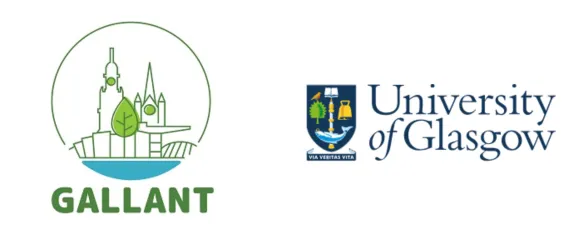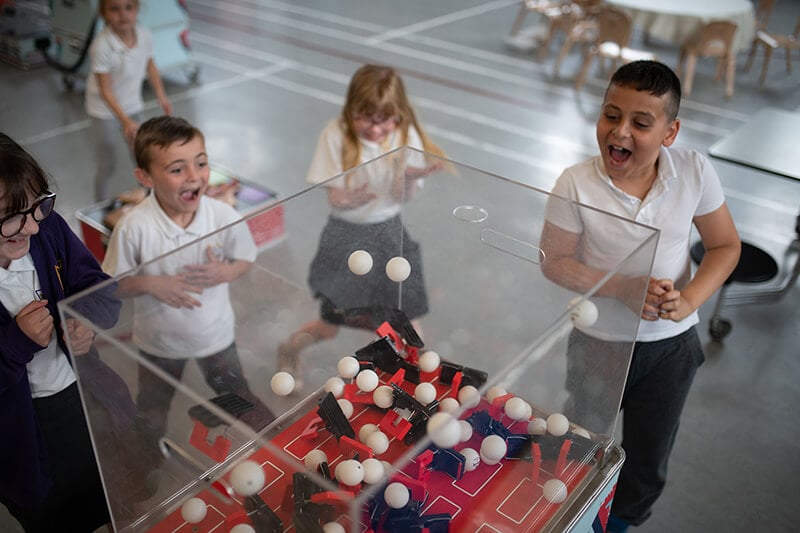Meet the Researchers
Glasgow Science Centre works closely with the team of researchers to deliver GALLANT activities to community groups. On this page you'll find a little bit of background on each of the team:
Researcher Bios
Emma
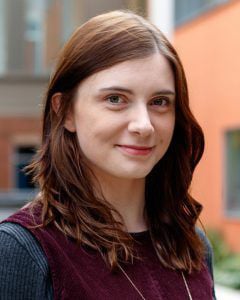
Hi, I’m Emma.
I am a post-doc research associate, that means I have already completed a PhD and I am now supporting further research in active travel.
I am looking at how we can get people across the city to be healthier and more planet-friendly when they travel, this includes walking, cycling, rollerblading, skateboarding and more!
We have widened our scope and are also interested in public transport, like buses, as they are a mode of sustainable travel.
At home I try to recycle and compost as much as possible, reducing how much I waste. I even have a milkman who brings me glass bottles.
Octria
Hi, I’m Octria,
I look after the flood risk part of the GALLANT project. Along with my team, we look at how we can stop flooding from taking land and destroying homes along the river Clyde.
You might have guessed that I love water, especially the sea. I am originally from Jakarta which is in Indonesia. My PhD looked at the flooding in global river deltas and because of the increased risks of flooding due to climate change, I am passionate about influencing policy to make the world more sustainable.
Graeme
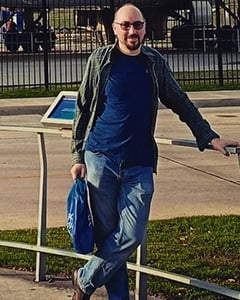
Hi, I’m Graeme,
I was the first person in my family to go to university. I studied chemistry and went on to be a barman and managed hotels and clubs for years. I went back to uni at 45 years old and did a PhD in Non-Equilibrium Thermodynamics which is about how energy moves through something that is not a steady temperature. This area of study can help us understand how things move and change in the world around us, helping us design better engines, understand our bodies better or predict weather patterns more accurately.
Nowadays I work with the team at GALLANT to look at sustainable energy and how we can create more planet-friendly ways of generating energy in our local spaces. I’m passionate about making a difference to people’s lives through finding creative solutions to problems.
I love the idea of making energy on a community level, imagine if every community owned their own power grid, produced their own energy, and drastically reduced their reliance on big energy systems that are harmful for the planet.
Nicola
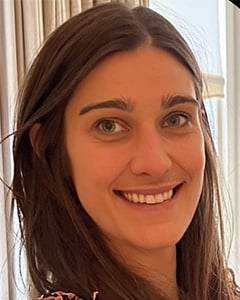
Hi, I'm Nicola,
I am doing a PhD which is about mapping energy use in communities with a view to finding out how we can use vacant land to provide energy to homes nearby. I loved maths at school and I was very good at it. Initially, I studied maths and economics and worked in the pensions industry. During the pandemic I started to think about a change in my career and decided to go back to university, I did a Masters degree in sustainable energy last year and now I’m working on my PhD.
I want to see people get benefit from the transition to net 0, including alleviating fuel poverty.
I have spent a lot of time travelling and over the years I have seen an increase in litter and pollution which has motivated me to make a difference. I feel that working with communities to understand their views is so important. I want to give people opportunities to generate their energy locally and reap the benefit in ways like reduced household bills.
Anton
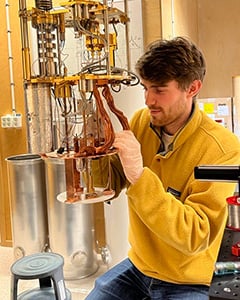
Hi, I’m Anton,
I am doing a PhD which is looking at vibrational energy harvesters, which are exactly what they sound like! They’re small bits of technology that gather energy from vibrations, we can potentially use them to gather energy from the vibrations formed by cars going over speedbumps or people walking across a bridge. This technology might be able to remove the need for batteries in some objects which would help make us more planet-friendly.
At school I didn’t feel like I was good at maths but I did my Masters degree in Aeronautical Engineering before working as a Mechanical Engineer in Sweden. I enjoy getting to work with lots of people who are working together towards making the world a better place.
I would like to see people consume less (of everything) and walk/active travel more. People aren’t aware of how much energy goes into making energy!
Carla
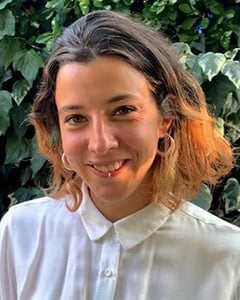
Hi, I’m Carla,
Along with other researchers at GALLANT I am looking at soil and how we can use it to store carbon whilst improving the quality of the soil around Glasgow. I’m exploring how using bacteria within the soil can help us lock away pollutants which make soil unsafe to grow food in.
I started my career as a civil engineer. Traditionally engineers have looked at soil as a dead thing, so when I was introduced to the concept of soil being alive, full of living organisms that can help engineers, I was fascinated! Soil is increasingly looked at in the fight against climate change, we have many resources in soil, we just need to help it along. With it, we could store large amounts of carbon.
I would like to see more vacant and derelict land become safe to grow on. When I was a child I spent a lot of time in the mountains, very close to nature. I try to be more planet-friendly by reducing how much I consume, for example I will ask myself if I really need a new item of clothing or if I can make do with what I have.
Heloisa
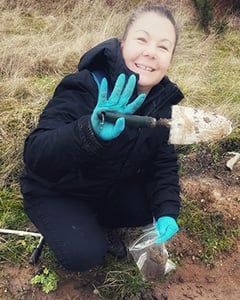
Hi, I’m Heloisa,
I am doing a PhD which is looking at how we can take the unhealthy stuff out of soil, leaving us with healthy soil that we can grow food in. This is especially important in a city like Glasgow because, due to all the shipbuilding etc. that happened here in the past, our ground is not safe to grow food in.
Soil is not something we tend to think about very much, but it's really important for the health of our planet and everything on it! Did you know that 70% of the bacteria used for antibiotics comes from soil?
Along with other GALLANT researchers, I'm trying to find ways to improve and use polluted and derelict land. In a laboratory, I am looking at ways we can create crystals of calcite to capture pollutants and carbon within soil.
When I was a little girl, I felt that I wasn't like other children, whilst they played on swings, I would be reading books, collecting leaves and trying to work out why they were different. It wasn't until I was a little older that I was diagnosed as neurodivergent. Neurodivergent people often grow up to be incredible scientists, engineers and artists because, just like little 5-year-old me, we see the world differently.
Jessica
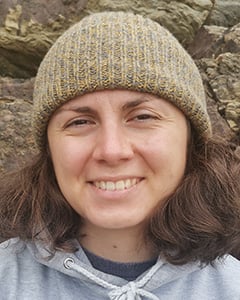
Hello! I'm Jessica,
I am doing a PhD which looks at how animals travel between green spaces in our city, in hope we might learn more about how we can help animals move safely throughout the city.
Along with the other staff and researchers at GALLANT, I'm aiming to help halt biodiversity loss. That means stopping the numbers of animals and plants from decreasing. By studying how we can look after, improve and connect our green spaces, I hope to find out how this can help improve the wellbeing of local wildlife, plants and people.
When I was in school, I didn't like biology because I felt it was too focused on humans. I grew up in a rural area, so I always felt close to nature and I loved David Attenborough documentaries. I loved maths and physics at school, so I thought I might end up doing something like engineering. When I started looking at degrees I realised I could do zoology rather than human biology and that got me excited. At university I went on some expeditions with the exploration society which got me into research.
Now, I am doing research on how animals travel between green spaces and I hope to find out if animals tend to stay in one space or travel between green spaces within the city. Obviously for birds this might be easy but for small mammals like hedgehogs this could be dangerous and difficult! I am excited to find out if there are ways we can improve and create "green corridors" which are safer ways for animals to travel.
Emma
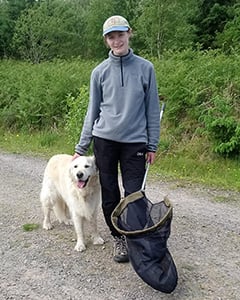
Hi! I'm Emma,
I am doing a PhD which is all about how people's green spaces, such as gardens, can be used to look after our planet. I spend lots of time in the summer sitting in gardens counting the buzzy insects as they land on flowers.
Along with the other staff and researchers at GALLANT, I'm aiming to help halt biodiversity loss. That means stopping the numbers of animals and plants from decreasing. By studying how we can look after, improve and connect our green spaces, I hope to find out how this can help improve the wellbeing of local wildlife, plants and people.
I have always been passionate about nature. I loved sciences in school and did biology, chemistry and psychology at A-level. As a child my family and I went walking a lot which really helped spark my love of science and nature. When I was young, I thought I wanted to be a vet, but eventually I realised it wasn't pets I wanted to work with. When I was studying zoology, I had an amazing tutor who sparked my passion for entomology (that's the study of insects). I think insects are fascinating and there is so much that we still don't know about them.
Did you know there are around 270 bee species in the UK alone? Some of them are tiny and cute. Bees are cool!
I would love to see more people learning about the wonderful biodiversity found in their area and how they can help look after it. I'd also like to see more people getting involved in monitoring and recording what species they find. We’re losing a lot of data now because many amateur recorders are aging, and we need more people to pick this up.
I try to help contribute towards a healthier planet by taking small actions such as reducing how much meat I eat, recycling my rubbish and getting public transport.

